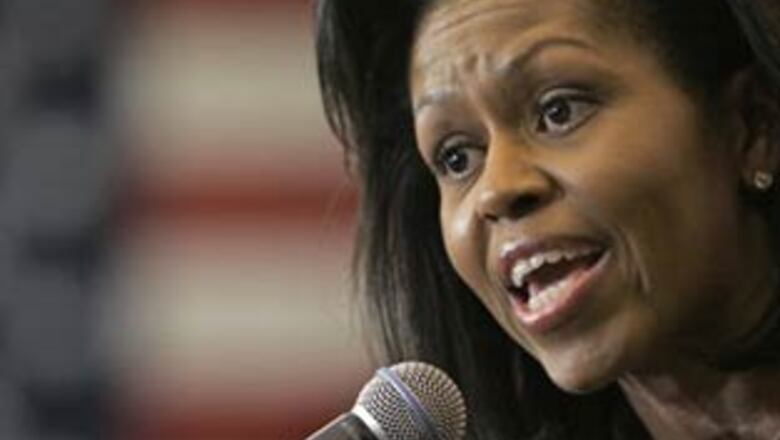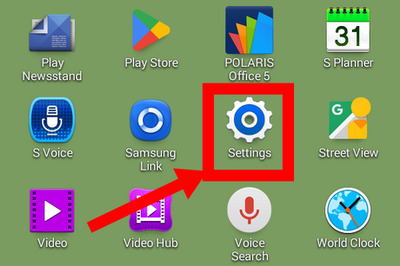
views
Washington: Summer, 1991: An up-and-rising Chicago attorney, not yet 30, interviews for a job as an assistant to the mayor. The job offer is immediate. The attorney calls the next day. Not to accept, but to make a counteroffer: My fiance would like to meet you first.
Even back then, Michelle Obama displayed the kind of self-assuredness the public associates with her today, after watching as this woman, once ambivalent about politics, who never saw herself as a politician's wife, spent two years campaigning tirelessly to elect Barack Obama to the presidency.
She provided the presidential campaign with several memorable unguarded moments.
As in, cracking that she'd like to take Bill Clinton and "rip his eyes out."
And inartfully commenting about new found pride in country, sparking a backlash by critics who accused her of being unpatriotic.
Family powerhouse
She is the family powerhouse who demanded that her husband quit smoking and who, when he called her to celebrate a legislative accomplishment, cut him off to say ants were overrunning the kitchen and bathroom and he needed to bring home traps.
Obama said he hung up wondering whether Senators Edward M Kennedy or John McCain ever bought ant traps on their way home.
As for the no-smoking edict, that's not been a complete success and it is easy to imagine her wagging finger should he slip up on that struggle at the White House.
Conventional wisdom is she helped his campaign by charming audiences. But there are other, less visible sides to Michelle Obama, the grown-up "daddy's girl" who turns 45 on Saturday.
Her deep roots and connections in Chicago led Obama to some of the people who would ultimately become major players in his political ascent.
Michelle LaVaughn Robinson Obama is Chicago through and through.
She was born and raised there, built a successful career there, and met her husband and gave birth to her two daughters there. Her longest stretch away came during the Ivy League years of the 1980s, when she followed older brother Craig east to Princeton University. She earned a sociology degree, followed by a law degree from Harvard.
After her husband's election to the US Senate in 2004, Michelle Obama declined to move to Washington. She chose instead to stay close to the friends-and-family support network that lent its hands as she juggled career, two young children and a household during his extended absences, whether he was in the state Senate in Springfield, Illinois, or in Washington.
Her father, Fraser, was a Democratic precinct captain who worked swing shifts at the city water plant despite the multiple sclerosis that was crippling him. Her mother, Marian, stayed home, raising the children in a one-bedroom apartment on the top floor of her aunt's house. Michelle and Craig slept in the living room, converted into two tiny bedrooms and a study area.
Michelle Obama talked about her dad often during the campaign, describing him as "our provider, our champion, our hero." He died in 1991.
Years later, she says, "I am constantly trying to make sure that I am making him proud — what would my father think of the choices that I've made, how I've lived my life, what careers I chose, what man I married?"
The combination of her father's passing, the death of a close friend and her relationship with Obama, who had been a community organiser in Chicago, ultimately led Michelle Obama to re-evaluate what she wanted out of life. She had spent a few years as an associate at the Chicago firm of Sidley & Austin as a corporate lawyer.
PAGE_BREAK
She settled on public service, and landed an interview with Valerie Jarrett, then a deputy chief of staff to Chicago Mayor Richard Daley. Offered the assistant's job on the spot, she asked if Jarrett would meet Obama, too.
Jarrett agreed—and passed muster. Michelle Obama took the job and Jarrett would become one of the couple's closest friends and advisers. She is headed to the White House as a senior adviser to the president.
The mayoral job led Michelle Obama to other public service work, including as the founding executive director of Public Allies, an AmeriCorps community service program that trained young people for jobs in the nonprofit world.
Her most recent position was as executive vice president for community and external affairs at the University of Chicago Hospitals, which paid a six-figure salary that for a time made her the family breadwinner.
Marrying Obama
In between, she married Obama in 1992. He had come to a Chicago law firm as a summer intern and she was assigned to mentor him. She had daughters Malia and Sasha in 1998 and 2001.
While Obama's community organizing work helped him make inroads of his own with South Side leaders and politicians, her Chicago roots were a bonus for a husband raised in faraway Hawaii and Indonesia. She knew Santita Jackson, daughter of the Rev. Jesse Jackson, and a variety of people from Daley's inner circle.
Michelle Obama went through some rough patches in the presidential campaign.
Her service on the board of TreeHouse Foods, a supplier for Wal-Mart Stores Inc., came under scrutiny, especially given Obama's criticisms of the retail giant. She resigned in May 2007.
She drew criticism for early attempts to make Obama not so much of a phenomenon but rather a regular guy. She described him as "snorey and stinky" in the morning and not one to put the butter back in the fridge and his smelly socks in the hamper.
When she suggested attaining the presidency "is just a dream" if Obama failed to win the Iowa caucuses, his campaign hastily clarified that was not so. As it turned out, he won there.
The biggest flap came from her remark in Wisconsin in February: "For the first time in my adult life, I am really proud of my country."
Cindy McCain, the usually reticent wife of Republican presidential challenger John McCain, jumped in to say she'd always been proud of her country. The Tennessee and Washington state GOP circulated videos playing up her comments.
She was called mean, angry, unpatriotic.
She explained later that she had been trying to say how proud she was that people were engaging in the political process because of her husband's candidacy, and that she'd always been proud of America.
For all of that, she was a draw in her own right in the campaign, pulling in crowds of thousands. Admirers saw her as authentic, "not like a plastic talking head," as one supporter put it.
It's clear as she prepares for the White House that she watches her words more closely than in the dawn of the campaign. But there is still the air of "real" about her.
She has said she will be "mom-in-chief," and her immediate priority will be helping her daughters adjust and not get too bigheaded because their daddy is president. She wants them to make their own beds and do chores.
Also helping to settle Malia and Sasha is their grandmother, Marian Robinson, who will live in the White House at least temporarily.
Before long, Michelle Obama can be expected to mold the position of first lady to fit her style.
She has expressed an interest in helping women do better at juggling their careers and families, as she herself has done; working with military families, many of whom are doing the same balancing act; education and community service.
"She's not going to all of a sudden forget what she's seen and heard and witnessed in her two years on the campaign trail with Barack Obama and will not avoid the opportunity to be heard on important issues," said Harvard law professor Charles Ogletree, a longtime friend. "She will be a voice."














Comments
0 comment